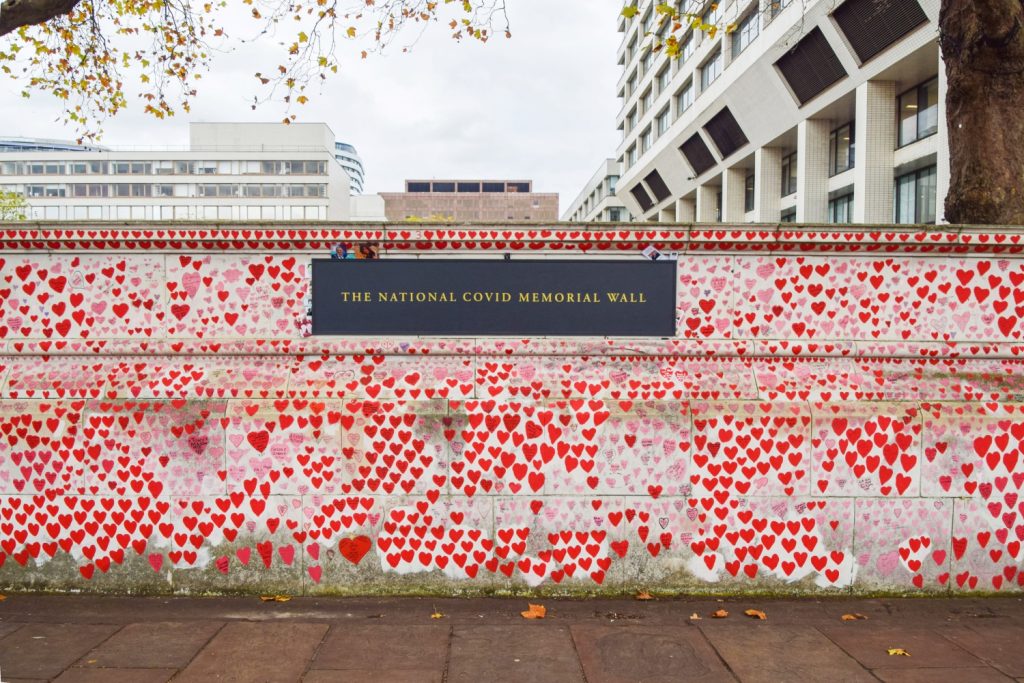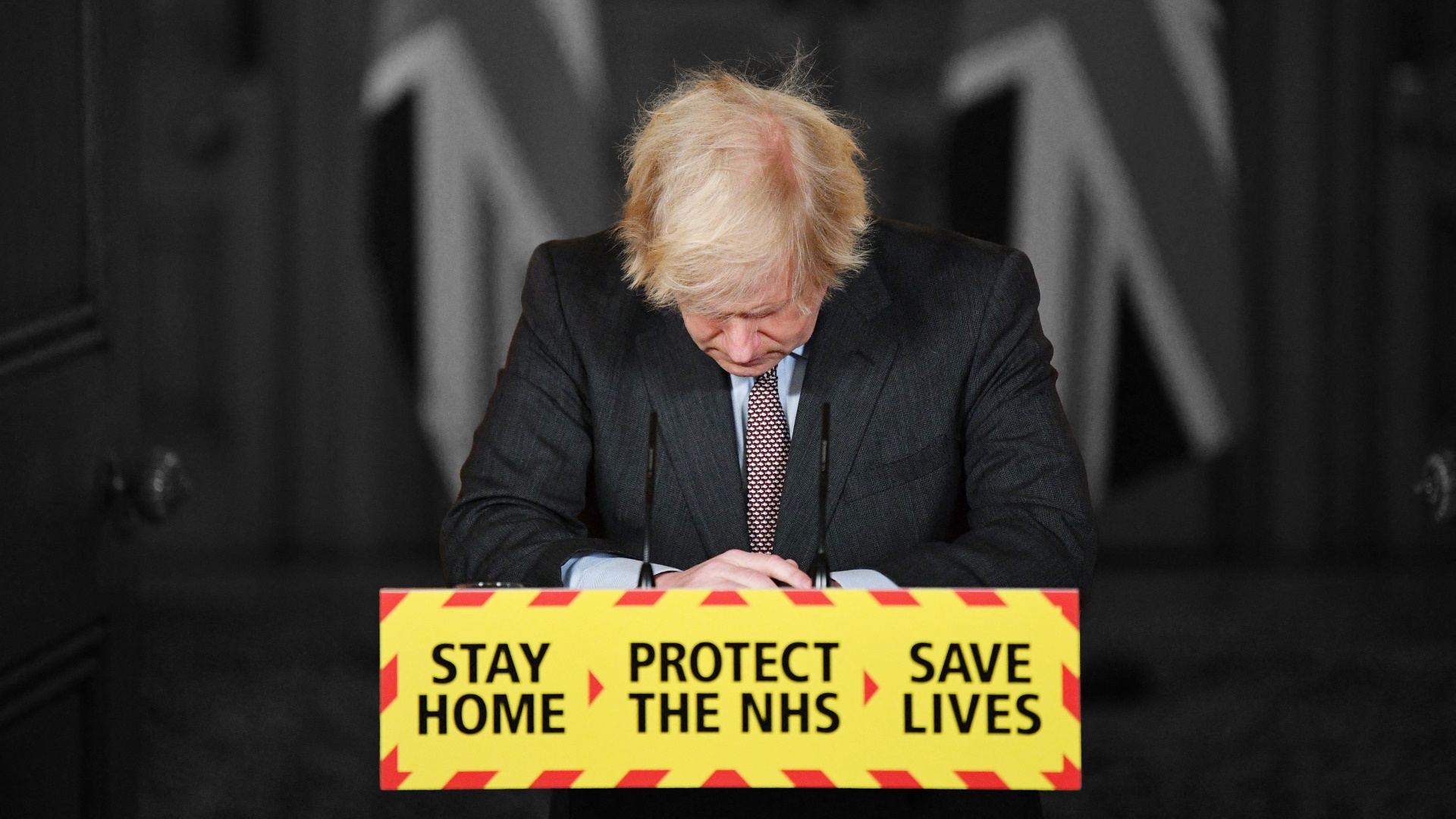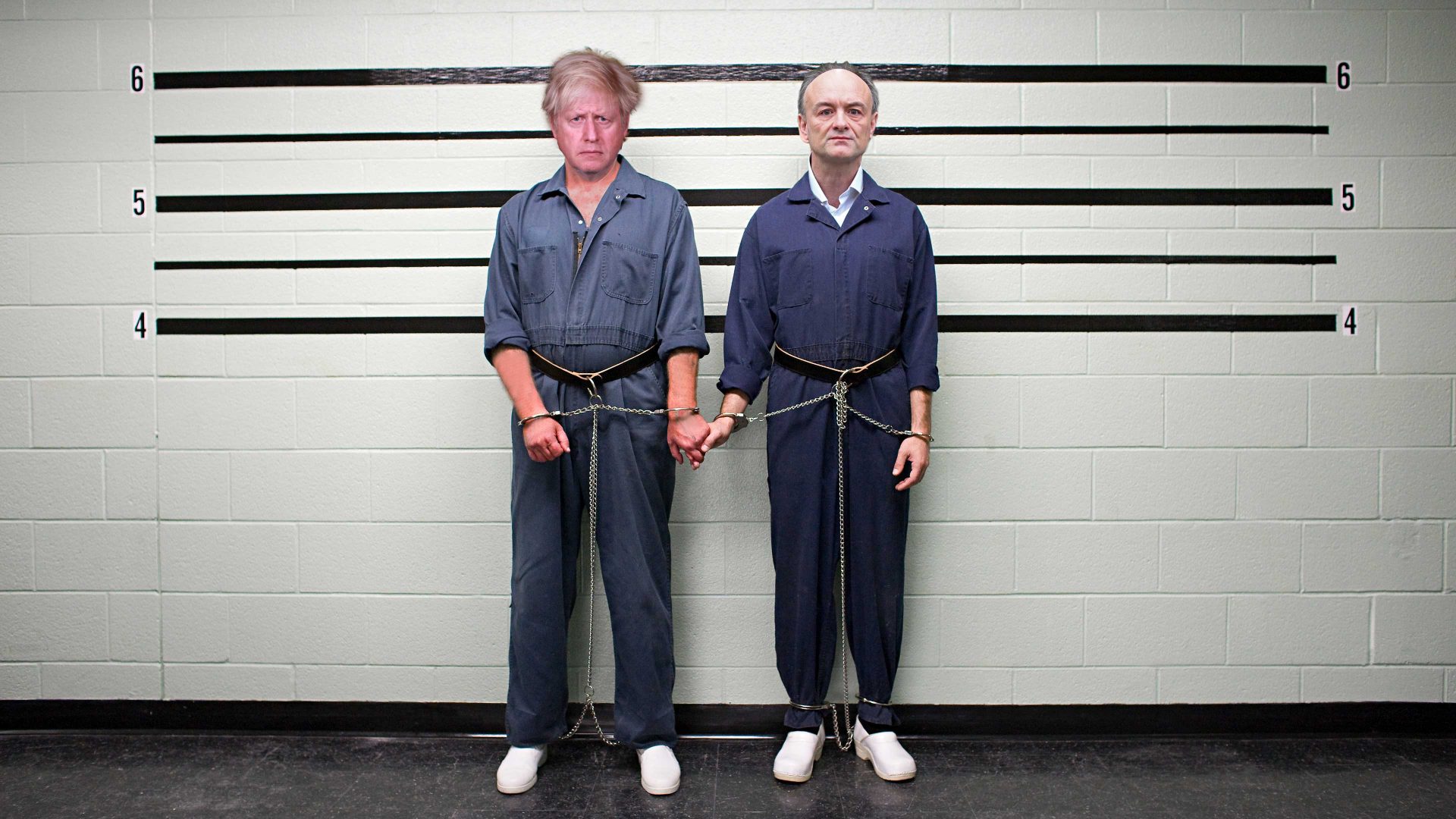Boris Johnson had the very best – not to mention the most expensive – education that Britain can offer. He is a graduate of Eton College and the University of Oxford. Despite all evidence to the contrary, he is almost certainly not a stupid man.
And yet, listening to the evidence given in the Covid inquiry, it’s clear that the prime minister handling what was surely the UK’s biggest national crisis since the second world war was completely incapable of doing the job.
Next month, Johnson will appear before the inquiry and attempt to repair some of the damage done to his already tattered reputation by the testimony of two men who were once among his closest political aides. Lee Cain was Johnson’s communications director and Dominic Cummings his director of strategy. According to both men, the PM was endlessly distracted, distracting and constantly changing his mind; unfit to lead.
The inquiry has shown that Johnson spent the buildup to March 2020 not really engaging with Covid at all. Instead, he acted in what Helen MacNamara, the deputy cabinet secretary, told the inquiry was an “incredibly bullish” way about the country’s ability to deal with it. And when the pandemic hit, he flailed, constantly changing his mind about whether to close down further or open up again as days turned into weeks and weeks into months.
Nothing good comes of such instability at the top even in normal times. During the pandemic, the results were catastrophic.
The UK has criminal sanctions in place when neglect or malpractice lead to deaths – companies have been convicted of corporate manslaughter due to gross negligence in events that have killed just one person. Directors of such companies can face jail time themselves: again, for one death, not thousands.
You might speculate about what might happen to the boss of a pharma company whose failures to get a grip of a crisis resulted in mass deaths. We do not have an investigation into corporate manslaughter, however, we have an inquiry.
As they gave their evidence, Johnson’s advisers were so constantly dismissive, if not outright contemptuous, of their former boss, that it’s all too easy to dismiss him yourself. But to do so would be a mistake. Because it is impossible, when either watching or reading the evidence being presented to the inquiry, to think that Johnson had any personal concern for the suffering of the people of the country he led. Until he was forced to confront Covid-19, Johnson simply ignored it.
This lack of concern and engagement manifested most obviously in his lack of personal conviction about how to confront the pandemic. He became a weathervane for the opinions of others. One person could convince him he had to lock down the country to save his premiership, others would then convince him that locking down was ninnyish and would ruin his Conservative credentials. The end result was a dithering, uncaring blob at the heart of government, wobbling uselessly while thousands died.
When Johnson did express views, they were deeply troubling. Evidence given to the inquiry has revealed a horrifying episode when he pointed out that the median age of death for those dying of Covid was 82. This, he observed, was higher than the UK’s average life expectancy of 78. Why, he asked, should Britain be locked down in response to a disease that made people “live longer”?
These remarks were made in October 2020, more than six months into the Covid crisis, by which time many thousands of people had already died in Britain and abroad, and the Italian healthcare system was straining to cope with surging rates of infection. Johnson’s reasoning contained an error so fundamental that it should have been rectified with a very simple two-minute briefing – a briefing that should have been given months earlier. And yet Johnson clearly believed it, despite having access to the government’s top scientific advisers.
The temptation here is to call Johnson’s error a mathematical mistake, but it isn’t that. No maths is needed to understand the flaws here, though it is needed to actually work out the statistical picture for yourself.
The UK’s life expectancy at birth is indeed about 78 – meaning we would expect around half of babies born today to make it to that age or older. That doesn’t mean we expect everyone who is already 78 to immediately drop dead. Once you’ve reached 78, a lot of possibilities for how you might die haven’t happened – you haven’t died of an infant sickness, or an accident as a child, or in a fight as a young adult. Life expectancy at birth isn’t all that relevant a stat once you’re already an older adult.
Happily, we have statistics that indicate how long we can expect adults of any given age to live – how many years they’re likely to have left. An 80-year-old man can expect to live for just under eight-and-a-half years longer, while an 80-year-old woman can expect to live for over nine-and-a-half years more. So even leaving aside those who died younger – and Covid killed more than 13,000 people aged 59 or younger – someone dying at 82 of Covid missed out on an average of about seven years of life.
Take that seven years (which will probably be an underestimate) and multiply it across 180,000 Covid deaths, and you find that people in the UK missed out on more than 1.2m years of life thanks to the Covid pandemic – leaving aside all of the effects on health and quality of life for those who caught the disease but survived. That the prime minister, despite being put in hospital by Covid himself by October 2020, had not taken the time to understand the devastating toll of the disease he was failing to contain is an appalling failure on his part. And yet his inability to grasp the full nature of the pandemic has not formed a central theme of the evidence given at the inquiry.
A rare exception came during MacNamara’s testimony. In her written evidence, she produced a list of problems that she felt became apparent throughout 2020 in relation to the pandemic. These included too much involvement of No 10 in decisions that should have been managed by other government departments, ignorance within No 10 of how the state operated, and other such concerns.
Seventh in her list was “an absence of humanity”, which at least merited a mention even if it did come after “unreasonable pressure on the No 10 private office”.
That absence of humanity might merit a little more inspection. Johnson’s “get Covid and live longer” message ended with a chilling remark. That note, which suggested lockdowns were unwarranted given the age of those dying of Covid, concluded: “There are max 3m in this country aged over 80”. In this context, it is hard not to read that as Johnson suggesting that the nation’s over-80s were somehow expendable, or at least not worth damaging the economy for.

The callousness of such a sentiment is jaw-dropping. An 80-year-old is likely to be aware that they’re in the last period of their life – but knowing that is very different from having no interest in living longer. When you expect to have seven or eight years of life left, especially if you’re in good health, you hope to enjoy them – to see your grandchildren grow up, to help raise them (or manage childcare), and more. You’re unlikely to be working, but does that really mean your life has no value any more?
Given that pensioners also make up the core of the Conservative voting base, Johnson certainly showed he had absolutely no sense of gratitude towards the people who put him into No 10 and who gave him his 80-seat-majority.
When Johnson appears before the Covid inquiry it is thought he will explain his callous remarks by claiming that he was simply “stress-testing” extreme views on either side of the lockdown debate. But after all the lies of the Johnson years, his word counts for very little.
None of us need a public inquiry to know that many of the people inside No 10 during the pandemic disgraced themselves. People who cared about serving the public would not have thrown parties, and neither would they have lied relentlessly about those parties afterwards. They would not have argued that they were entitled to hold those gatherings because they happened to be sitting at their desk – millions of workers risked Covid every day to do their jobs, without any such sense of entitlement.
When she was asked about attitudes inside No 10 to Covid restrictions, MacNamara told the inquiry: “I’d find it hard to pick one day when regulations were followed.” This disdain, combined with the casual language used to refer to deaths and to widespread suffering and sacrifice, create a picture of extreme arrogance.
There is much that the inquiry is teaching us, even if we might have suspected it before, and much of it goes beyond knowing that Johnson’s administration was a disastrous mess.
One of the most striking moments came from Cain’s evidence, in which he discussed how a government communications plan on the government’s response to Covid – essentially a PR strategy for explaining to the media what the government was trying to do – became understood as the government’s actual strategy for dealing with the pandemic itself.
This might not grab headlines in the way that sweary text messages or Johnson’s perennial dithering did, but it should be every bit as startling. Everyone in government assumed that there was a plan for dealing with a situation like Covid. Indeed, a global conference a few years before the outbreak had rated the UK among the very best countries in terms of pandemic preparedness. In the months leading up to March 2020, Matt Hancock, the health secretary, had repeatedly assured No 10 and the cabinet that a plan existed.
None of this turned out to be true. There was a limited plan on how the Department of Health and the NHS should respond to a pandemic, but even this was rendered largely useless by a myopic assumption that any future pandemic would be a variant of the flu virus.
In fact, this flu outbreak plan – about the only one that existed – probably did more harm than good, as it led to an excessive focus on handwashing as the most important way to prevent transmission. It also led to months of telling the public that wearing a mask would be unnecessary or even harmful, even though most coronaviruses are airborne, and Covid certainly was. It took months to overcome the rigidity of thinking.
As ever, small things illustrate the big things: in her evidence, MacNamara noted that it took seven months to install hand sanitiser next to the door between the Cabinet Office and No 10, which is opened with a keypad. That this took seven months is bad enough in its own right. But perhaps worse is that, even after all that time, No 10 still hadn’t realised that handwashing was Covid theatre – much more dangerous was the fact they were all breathing the same stagnant air.
This is where the failures over Covid have to move beyond the Johnson government and towards the British state. Most departments had no pandemic plan, and so they leaned on an overloaded No 10. The Treasury was left on the back foot – which could have had disastrous consequences, had the Bank of England not presented the Treasury with a largely ready-made proposal for furlough.
The Cabinet Office and the government had very few of the contingency plans that most of us would imagine the British state has ready. MacNamara seemingly had to draw up a plan on little more than the back of an envelope of what to do should the prime minister be incapacitated by illness. There was little in the way of planning for what to do if key officials got sick. Everything was done on the fly.
It was inevitable that Boris Johnson would fail the challenge of Covid. What is particularly telling is that absolutely everyone around him seems to agree that he was absolutely the wrong man for the job – even those who put him there.
Few of that group seem to accept culpability for installing as PM someone who proved so poor at the job when the stakes were so high. Dominic Cummings was particularly withering about Johnson in his testimony to the inquiry. But then, if Johnson was a fool, and they could see he was a fool, and if he was their fool, don’t they share responsibility for his failures?
But it does also seem as if Johnson was set up to fail in a way that was perhaps harder to anticipate. The UK government machinery spent the years in the run-up to the pandemic dislocating its shoulder in an effort to pat itself on the back about its own preparedness, without ever actually checking whether this was the case.
But in the end, every procedure, every contingency – everything seemed as if it had to be made up on the spot. There is an old saying that no battle plan survives contact with the enemy, but that is not an argument for not drawing up battle plans. Everything was always going to be frenetic and there would always be mistakes – but it does seem as if the machinery of government made it all worse.
Fixing the machinery will help with more than just future pandemics – though if it would only help with that, it would be reason enough to do it. The catharsis of the Covid inquiry will come from the confirmation that the personalities concerned, and particularly Johnson, were as bad as we all suspected.
Johnson’s inability to show leadership and his gross unsuitability for the role of prime minister is tinged with a much darker sense of his moral failure as a person. If Johnson had held a “lesser” office, had he been the owner of a local business, and his failings had killed employees on his watch, he would probably face criminal sanctions up to and including jail.
We are seeing that in the highest of offices, his negligence contributed towards thousands – perhaps tens of thousands – of additional deaths to Covid. His punishment so far is millions of pounds of speaking gigs, a book deal, a Daily Mail column and a TV show. What sane person can look at that and say the British justice system isn’t in crisis?




